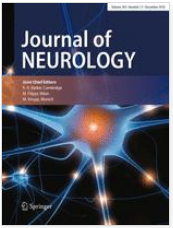 In order to evaluate the prevalence of cardiac involvement in patients with congenital myopathies and the association to specific genotypes, a team of Danish and French clinicians evaluated patients with physical examination, electrocardiogram, echocardiography, and 48-h Holter monitoring. Follow-up was performed for major events.
In order to evaluate the prevalence of cardiac involvement in patients with congenital myopathies and the association to specific genotypes, a team of Danish and French clinicians evaluated patients with physical examination, electrocardiogram, echocardiography, and 48-h Holter monitoring. Follow-up was performed for major events.
The authors included 130 patients, 55 men (42%), with a mean age of 34 ± 17 years. A genetic diagnosis was established in 97 patients (75%). Right bundle branch block was observed in three patients: 2/34 patients with a ryanodine receptor 1 (RYR1) and 1/6 with a tropomyosin two gene (TPM2) gene mutation. Echocardiography showed left-ventricular hypertrophy in five patients: 2/17 and 3/34 patients with a Dynamin 2 (DNM2) and a RYR1 mutation, respectively. One patient with a myosin heavy-chain (MYH7) mutation had dilated cardiomyopathy and heart failure. On Holter monitoring, frequent ventricular premature contractions were observed in one patient with a DNM2 mutation. Two patients with a TPM2 and a RYR1 mutation, respectively, had a single short run of non-sustained ventricular tachycardia. Atrioventricular nodal re-entry tachycardia was observed in a 20-year-old man with an actin 1 gene mutation. During follow-up (median 8.4 years), four patients died, all of non-cardiac causes.
Congenital myopathies are generally associated with a mild cardiac phenotype. These findings substantiate the literature and indicate that, except for patients with specific genotypes, such as MYH7 and TTN mutations, repeated cardiac assessments can be minimized, given a normal initial cardiac screening at time of diagnosis.
